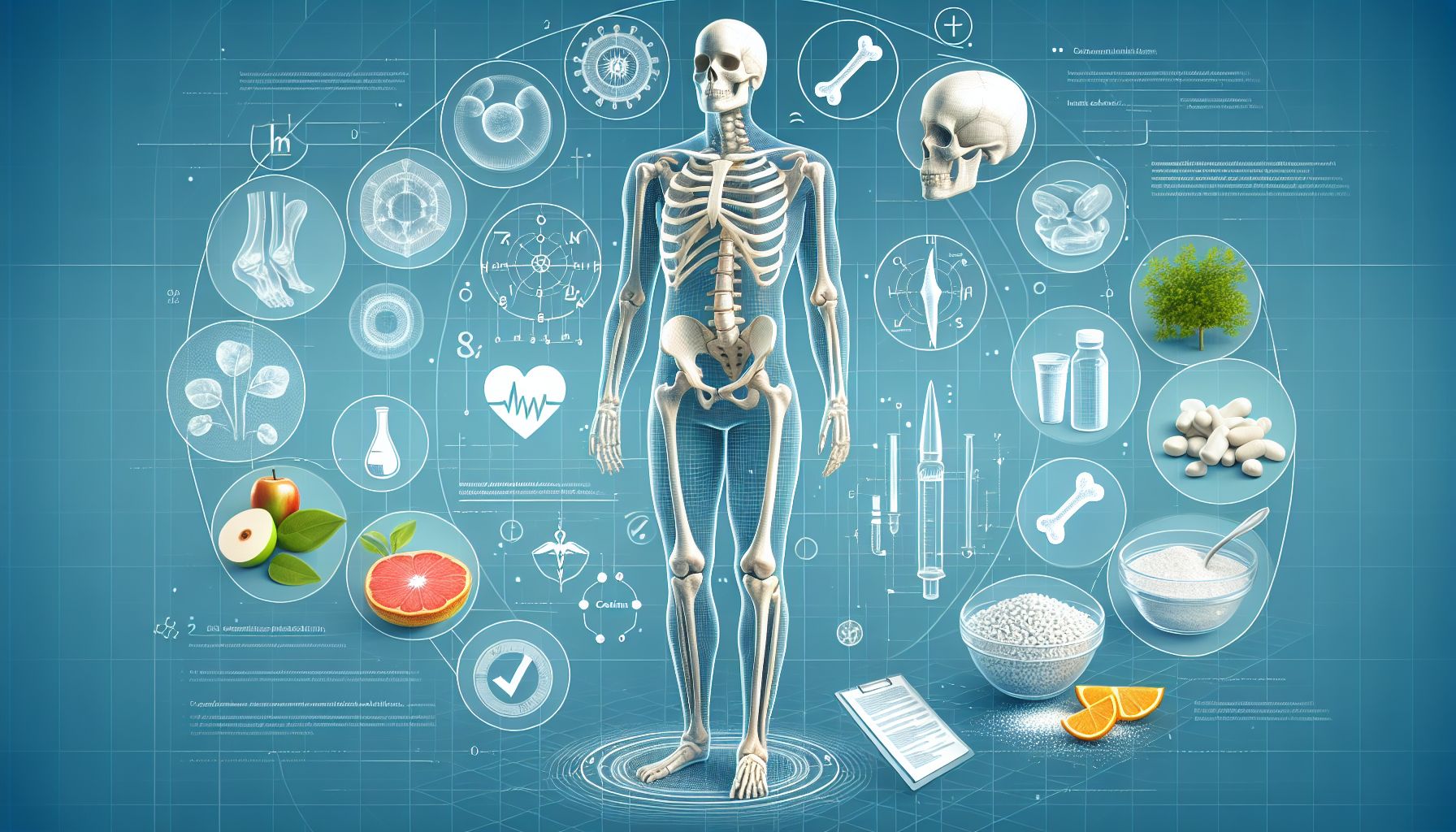
Understanding Healthy Bones: A Comprehensive Guide
Bones are the structural foundation of our bodies, supporting movement and protecting vital organs. Ensuring the health of our bones is crucial for maintaining overall health and quality of life. This guide will explore what “Healthy Bones” entails, how to achieve and maintain bone health, and the role of supplements and lifestyle choices in supporting strong bones.
What Are Healthy Bones?
Healthy bones are characterized by their density, strength, and ability to withstand stress. They are rich in essential minerals such as calcium and phosphate, which are vital for their structural integrity. Bone health is influenced by various factors, including genetics, diet, physical activity, and exposure to sunlight.
Why Is Bone Health Important?
Maintaining healthy bones is essential for preventing osteoporosis, a condition where bones become brittle and fragile. According to the National Osteoporosis Foundation, over 54 million Americans have low bone density or osteoporosis, increasing their risk of fractures. Healthy bones are also crucial for mobility, balance, and overall physical function.
Key Nutrients for Healthy Bones
Achieving optimal bone health requires a balanced diet rich in key nutrients. Here are some essential vitamins and minerals for bone health:
- Calcium: The most abundant mineral in bones, calcium is crucial for maintaining bone density. Adults need about 1,000 mg of calcium per day, which can be obtained from dairy products, leafy greens, and fortified foods.
- Vitamin D: This vitamin helps the body absorb calcium. Sun exposure, fatty fish, and fortified foods are excellent sources of vitamin D. The recommended daily intake is 600-800 IU.
- Magnesium: Found in nuts, seeds, and whole grains, magnesium supports bone structure by interacting with calcium.
- Vitamin K: Essential for bone formation, vitamin K can be found in green leafy vegetables and fermented foods.
Lifestyle Choices for Strong Bones
In addition to diet, certain lifestyle choices can significantly impact bone health:
Regular Exercise
Weight-bearing and resistance exercises, such as walking, jogging, and weightlifting, stimulate bone formation and increase bone density. Aim for at least 30 minutes of exercise most days of the week.
Avoid Smoking and Excessive Alcohol
Smoking and excessive alcohol consumption can lead to bone loss and increase the risk of fractures. Limiting these habits is crucial for maintaining healthy bones.
Monitor Your Bone Health
Regular bone density tests, especially for those over 50, can help monitor bone health and prevent potential issues. Consult your healthcare provider for recommendations.
Supplements for Bone Health
In some cases, diet and lifestyle may not provide enough nutrients for optimal bone health, leading to the need for supplements. Here are some common supplements to consider:
Calcium Supplements
Calcium supplements are recommended for individuals who do not get enough calcium from their diet. It’s essential to choose the right type of supplement (calcium carbonate or calcium citrate) and take it in divided doses for better absorption.
Vitamin D Supplements
Vitamin D supplements can help maintain adequate levels, especially in individuals with limited sun exposure or dietary intake. Consult a healthcare provider for the appropriate dosage.
Other Bone Health Supplements
Some supplements, such as collagen and omega-3 fatty acids, may support bone health, but more research is needed to confirm their effectiveness. Always consult a healthcare professional before starting any supplement regimen.
Potential Side Effects and Precautions
While supplements can be beneficial, it’s important to be aware of potential side effects and interactions:
- Excessive calcium intake can lead to kidney stones and cardiovascular issues.
- High doses of vitamin D can cause toxicity, leading to nausea, weakness, and kidney damage.
- Interactions with medications: Calcium and vitamin D supplements can interact with certain medications, such as antibiotics and blood pressure drugs.
Consult a healthcare provider to ensure the safe and effective use of supplements.
Expert Opinions on Bone Health
Dr. Emily Johnson, a leading endocrinologist, emphasizes the importance of a holistic approach to bone health: “While supplements can be helpful, they should not replace a balanced diet and active lifestyle. Regular check-ups with your healthcare provider can help tailor a plan that’s right for you.”
Pharmacist Sarah Thompson advises, “When considering supplements, always choose reputable brands and follow dosage instructions. It’s also essential to discuss any new supplements with your healthcare provider, especially if you’re taking other medications.”
Where to Purchase Quality Supplements
For a reliable source of high-quality bone health supplements, consider purchasing from our recommended site. Visit our website for more information and to explore our selection.
Conclusion
Maintaining healthy bones is vital for overall health and well-being. By understanding the key nutrients and lifestyle choices that support bone health, you can take proactive steps to prevent bone-related issues. Supplements can offer additional support when needed, but it’s essential to approach them with caution and under professional guidance. Remember, strong bones lead to a strong life.
|
Zachary Paul
Zachary Paul is an independent investigative journalist living in New York City. |

